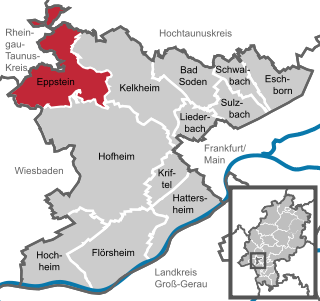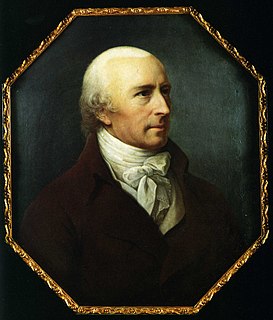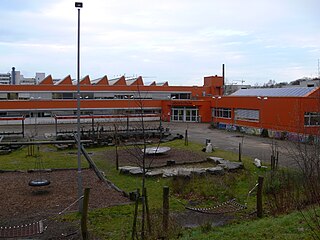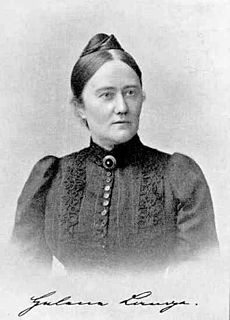
Bochum is the sixth largest city of the most populous German federal state of North Rhine-Westphalia after Cologne, Düsseldorf, Dortmund, Essen and Duisburg, and its 364,920 (2016) inhabitants make it the 16th largest city of Germany. On the Ruhr Heights (Ruhrhöhen) hill chain, between the rivers Ruhr to the south and Emscher to the north, it is the second largest city of Westphalia after Dortmund, and the fourth largest city of the Ruhr after Dortmund, Essen and Duisburg. It lies at the centre of the Ruhr, Germany's largest urban area, in the Rhine-Ruhr Metropolitan Region, and belongs to the region of Arnsberg. It is surrounded by the cities of Herne, Castrop-Rauxel, Dortmund, Witten, Hattingen, Essen and Gelsenkirchen. Bochum is the sixth largest and one of the southernmost cities in the Low German dialect area. There are nine institutions of higher education in the city, most notably the Ruhr University Bochum, one of the ten largest universities in Germany, and the Bochum University of Applied Sciences.

The responsibility for the education system in Germany lies primarily with the states (Länder), while the federal government plays a minor role. Optional Kindergarten education is provided for all children between one and six years old, after which school attendance is compulsory. The system varies throughout Germany because each state (Land) decides its own educational policies. Most children, however, first attend Grundschule from the age of six to eleven.

Eppstein is a town in the Main-Taunus-Kreis, in Hesse, Germany.

A Hauptschule is a secondary school in Germany, starting after four years of elementary schooling, which offers Lower Secondary Education according to the International Standard Classification of Education. Any student who attends a German elementary school can go to a Hauptschule or Gesamtschule, while students who want to attend a Realschule or Gymnasium need to have good marks in order to do so. The students spend five to six years at the Hauptschule, from 5th to 9th grade. They finish around age 15 to 17.

Joachim Heinrich Campe was a German writer, linguist, educator and publisher. He was a major representative of philanthropinism and the German Enlightenment.

Realschule is a type of secondary school in Germany, Switzerland and Liechtenstein. It has also existed in Croatia, Austrian Empire, German Empire, Denmark and Norway (realskole), Sweden (realskola), Hungary (reáliskola), Slovenia (realka) and in the Russian Empire.

Gertrud Bäumer was a German politician who actively participated in the German civil rights feminist movement. She was also a writer, and contributed to Friedrich Naumann's paper Die Hilfe. From 1898, Bäumer lived and worked together with the German feminist and politician Helene Lange.

Geisenheim is a town in the Rheingau-Taunus-Kreis in the Regierungsbezirk of Darmstadt in Hessen, Germany, and is known as Weinstadt, Schulstadt, Domstadt and Lindenstadt.

Karin Wolff is a German politician and vice-president of Hesse.
Education in Hamburg covers the whole spectrum from kindergarten, primary education, secondary education, and higher education in Hamburg. The German states are primarily responsible for the educational system in Germany, and therefore the Behörde für Schule und Berufsbildung is the administrative agency in Hamburg. The Behörde für Wissenschaft und Forschung has the oversight for universities and colleges.

The Laborschule Bielefeld is an alternative school located in the city of Bielefeld, Germany. It has received significant media coverage in Germany because it is one of Germany's few "democratic" schools. The Laborschule has been called one of Germany's best schools by the media. One of the German teachers' unions has objected to this.
Differences in academic achievement among different ethnic groups in Germany is a topic that has drawn the interest of the German academic and scientific communities.
Helene-Lange-Schule may refer to:
German School Abuja is a German international school located on the grounds of the Julius Berger Life Camp in Gwarinpa, Abuja, Nigeria. Its classes go from Vs to 10. It is a part of the Deutsche Schulen Nigeria system, which included a school in Lagos, the Deutsche Schule Lagos. The organisation Julius Berger Nigeria PLC operates the school.
German Swiss International School Accra is a German-Swiss international school in Accra, Ghana. It serves elementary and junior high school levels.

Deutsche Schule Hermannsburg is a private school in Hermannsburg, KwaZulu-Natal, South Africa. It serves Grade levels RRRR through Grade 12. It was established in 1856, making it the oldest private school in the province.

Marienstatt Abbey is a Cistercian monastery and a pilgrimage site in Streithausen, Westerwaldkreis, Rhineland-Palatinate, in the Nister valley near Hachenburg.

Höhere Mädchenschule or Höhere Töchterschule were names of historic schools for the higher education of girls in German-speaking countries between the beginning of the 19th century and 1908. The names may mean higher education, but also education of girls of the upper classes. Some early institutions of higher education for girls were called Lyceum, while the term Gymnasium was first used only for boys' schools.


















